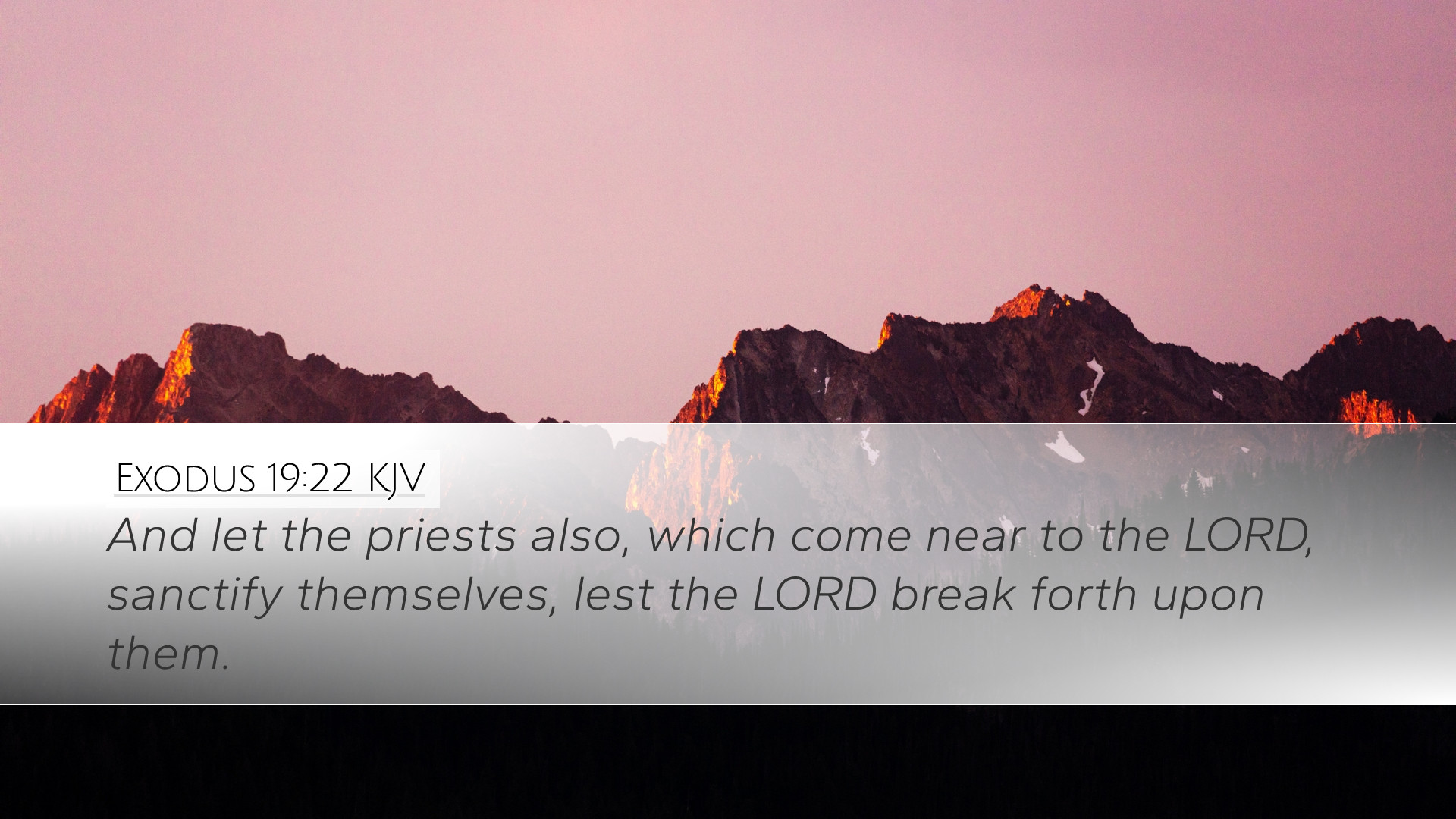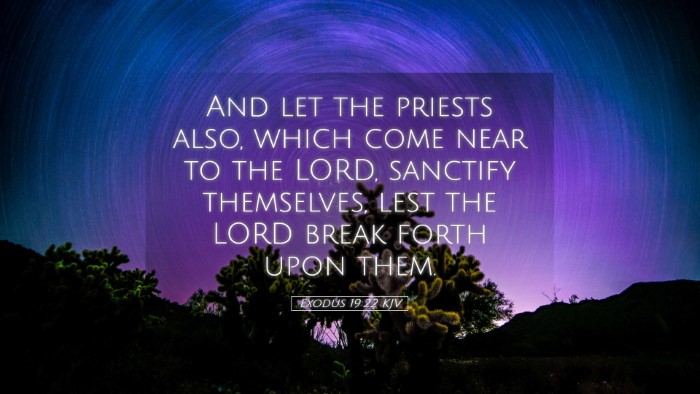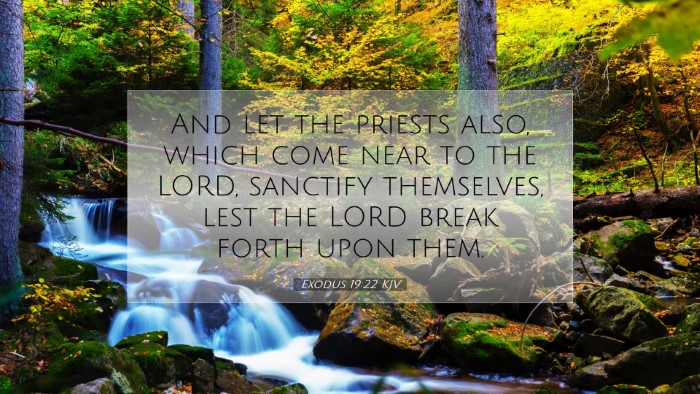Exodus 19:22 Commentary
Verse Context: Exodus 19:22 reads: "And let the priests also, which come near to the LORD, sanctify themselves, lest the LORD break forth upon them." This passage occurs during the preparation for Israel's encounter with God at Mount Sinai, a pivotal moment in biblical history.
Introduction
This verse emphasizes the holiness required to approach God. It serves as a critical reminder of the sanctity involved in worship and the seriousness with which God treats the interactions between Himself and His people. The commentaries agree that this serves as a prelude to the giving of the Law, illustrating both God’s majesty and the reverence due to Him.
Insights from Commentaries
Matthew Henry
Matthew Henry notes that the priests, who represent the people before God, must be especially mindful of their holiness. The requirement for self-sanctification indicates the high stakes involved when approaching God. Henry emphasizes that the call to sanctity is not merely ceremonial but speaks to an inner spiritual readiness. He argues that true sanctification comes from the heart and is evidenced in behavior that reflects God's character.
Albert Barnes
Albert Barnes provides insight into the broader implications of holiness in worship. He asserts that the priests' sanctification signifies an overarching principle applicable to all believers; to approach God, one must be cleansed. Barnes expands on the idea that neglecting sanctification could result in severe consequences, including God's judgment. This perspective is vital for understanding the seriousness of spiritual discipline and personal integrity in ministry.
Adam Clarke
Adam Clarke emphasizes the concept of separation, signifying that the priests must set themselves apart from common practices to perform their duties. He interprets the phrase "lest the LORD break forth upon them" as a warning of potential divine retribution. Clarke’s commentary highlights the need for diligence in one’s spiritual life and the recognition that God's holiness cannot be approached casually. He stresses the importance of ethical living alongside liturgical practices, suggesting that both are necessary for true worship.
The Importance of Sanctification
Sanctification is a recurring theme in scriptural teaching about how to relate to God. This verse elucidates that sanctification is a communal responsibility, particularly for those in priestly roles. The holiness of God necessitates a response of purity and preparation. The necessity of sanctification is not only applicable to the clergy but extends to the laity as well. The call is clear — every believer must strive for a life that reflects God’s holiness.
Applications for Today
- Personal holiness: Every believer is called to pursue personal holiness as a reflection of their relationship with God.
- Leadership responsibility: Those in leader positions must model sanctification, understanding its impact on congregational life.
- Awareness of God’s presence: There should be a heightened awareness that engaging with God is a serious matter requiring reverence and preparedness.
- Cultivating a culture of reverence: Churches should foster an atmosphere that considers God’s holiness, leading to greater respect in worship settings.
Conclusion
Exodus 19:22 serves as a profound reminder of the need for preparation before engaging with the divine. Through the reflections of Matthew Henry, Albert Barnes, and Adam Clarke, we see that the emphasis lies in the integrity, reverence, and holiness necessary for approaching God. Today, as in ancient times, sanctification is essential for anyone seeking to understand and embody the nature of God in their lives.


